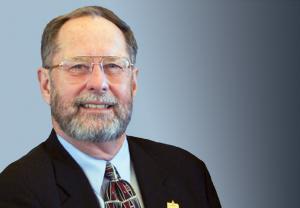Towards a consensus-based outline of how technological advances can be encouraged and risk-managed.
Tom Sloan is serving his eleventh term in the Kansas House of Representatives. He earned a doctorate in political science from the University of North Carolina at Chapel Hill and served on the Department of Energy’s Electricity Advisory Committee and the GridWise Architecture Council. He is a leading member the National Conference of State Legislatures’ and Council of State Governments’ energy and environment committees. He also serves on the Federal Communications Commission’s Intergovernmental Affairs Committee.
John F. Kennedy stated: "Change is the law of life. And those who look only to the past or present are certain to miss the future."

There are many bright people engaged in energy strategic thinking. But so many strategic discussions are relegated to silos, or in conferences where panelists from the various sectors talk about their perspectives while not fully engaging in more productive focused debates.
State legislators educating other legislators. Regulators exchanging perspectives with regulators. Utility executives sharing experiences with utility executives. Consumer advocates talking with other advocates.
These certainly have value. Too often, though, these types of conversations do not result in actionable items. Similarly, conference panels with balanced participation, while laudable, generally do not result in inter-constituency actions.
I do not minimize the value of opportunities for inter-stakeholder discussions, such as utility executives talking with consumer advocates during conference social hours. However, in most of the panels on which I have served, panelists shake hands, say nice things, and then depart to act within their our own spheres of influence.

